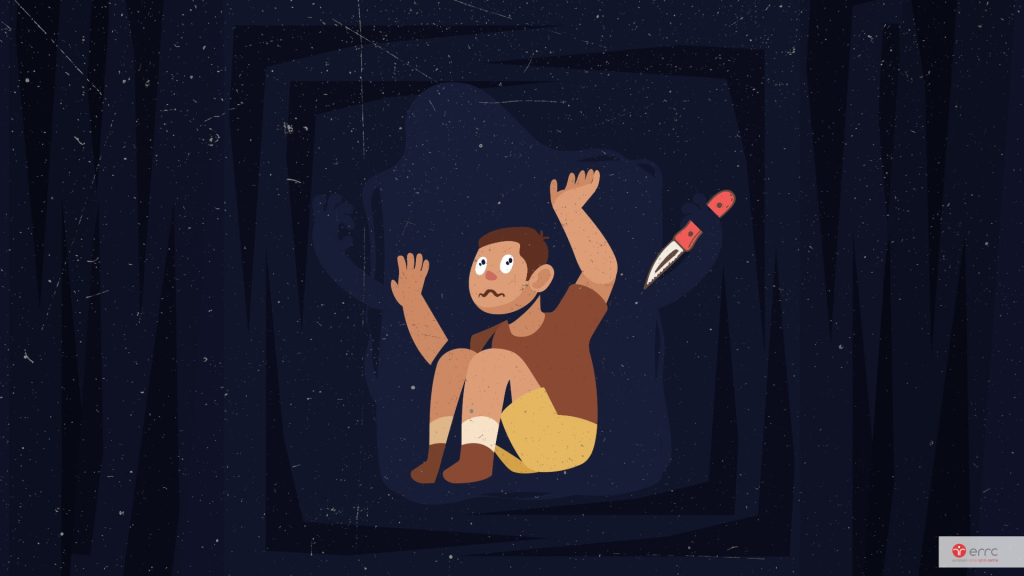North Macedonia: Terrified eight-year-old Romani boy forced at knifepoint to kiss the shoes of his racist tormentors
24 November 2025

The ERRC filed a complaint with the Ombudsman on 17 October following a shocking incident, where a traumatised and weeping eight-year-old boy was threatened, degraded, and forced at knifepoint by two adult perpetrators to kneel and kiss their shoes.
This atrocious incident, which took place in early November in the city of Strumica, was recorded by the attackers, and disseminated on Facebook. Subsequently, the authorities reportedly identified both men and placed them under house arrest.
The ERRC complaint asserted that this incident was one of hate-motivated violence grounded in race, ethnic origin, membership of a marginalised group, and age. The complaint emphasised the organised nature of the abuse, the deliberate filming, and public posting on social media, which caused secondary victimisation through public exposure, comments, and sharing. The ERRC argued that these factors “elevate the case beyond an ‘ordinary’ crime into the sphere of hate crimes and discrimination against Romani children.”
The complaint, filed against the Ministry of Interior, the Strumica Public Prosecutor’s Office, and the local Centre for Social Work, alleges failures in protection and effective response. It calls on the Ombudsman to examine conduct and omissions, identify rights violations, and issue binding recommendations.
As to placing the perpetrators under house arrest, the ERRC considered this an inadequate response given the gravity, public nature, and racist motivation of the attack, and questioned whether police, prosecution, and social services have fulfilled positive obligations to protect the child and prevent further harm, including urgent psychosocial support, risk assessment, and prevention of re-victimisation.
‘Protection of children from violence is a fundamental right of every child’
Violence against children is endemic in North Macedonia. As many as 4 out of 5 children in the country face violence from their parents, according to a UNICEF study; children are too often exposed to at least one form of violence within their homes, from psychological aggression, to minor or severe physical punishment. Violence in schools is not sufficiently monitored and it is underreported; data is scarce. Children living on the street and children cared for in an institution are considered to be at even greater risk of violence.
Research published in 2025 has revealed alarming levels of peer violence among school-aged children in North Macedonia. Many of the adolescent perpetrators have themselves experienced violence, either at home or in their communities — pointing to a cycle of violence that extends beyond the classroom. The situation is further aggravated by underreporting. A large majority of surveyed respondents (73%) did not report violence against children that they had witnessed. According to UNICEF, “Unmeasured problems are left unresolved. Too often, violence is not monitored properly and unreported. This also leaves those that do act violently unsanctioned, contributing for continuing high tolerance of violence towards children in the society.”
This latest shocking racist attack on an eight-year-old Romani child took place in a society where violence against children is commonplace, and violence against Roma by state and non-state actors all too frequent. For these reasons, the ERRC has called for remedies to include a thorough review of measures in place to prevent the recurrence of such attacks; for proportionate penalties for perpetrators of racially aggravated hate crimes – penalties that serve as a deterrent; and for clear, unequivocal, and very public condemnation of violence and racism against Roma. As for Romani children, the state must do its utmost to ensure that each and every one can exercise their inalienable right to a safe and secure childhood that is completely free from violence, exploitation and abuse.




